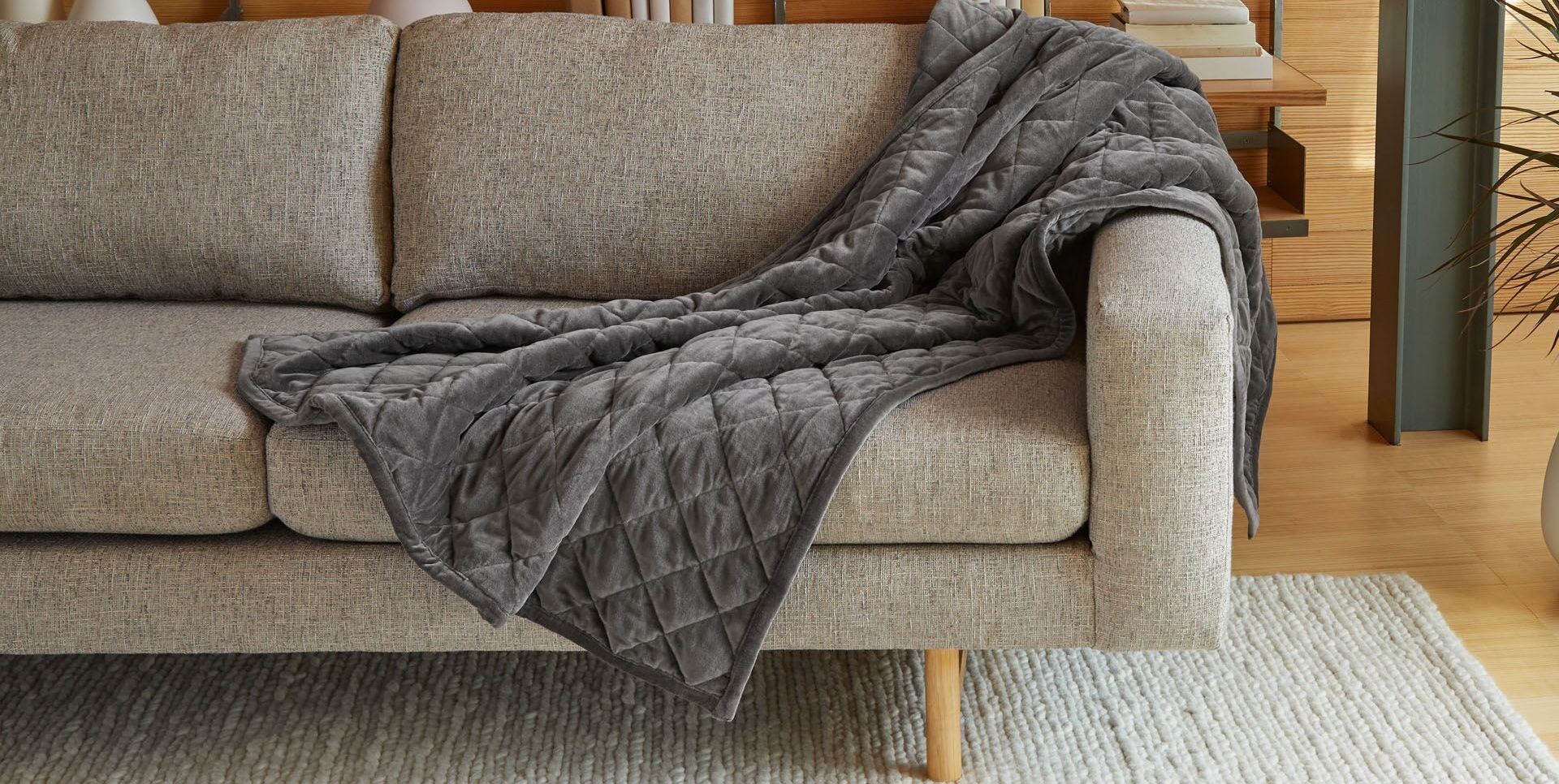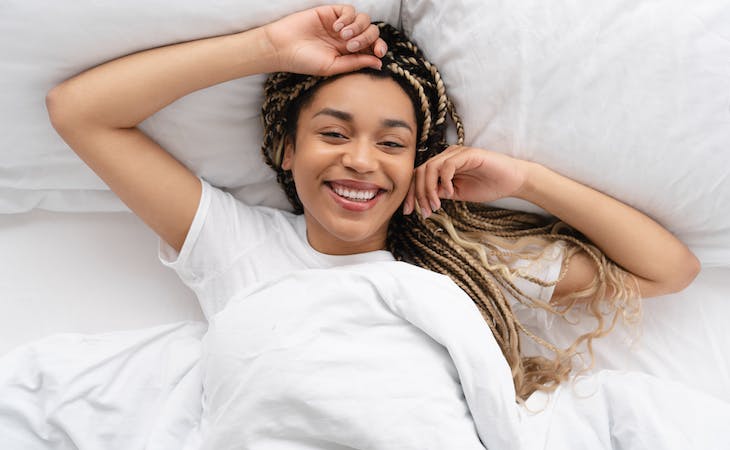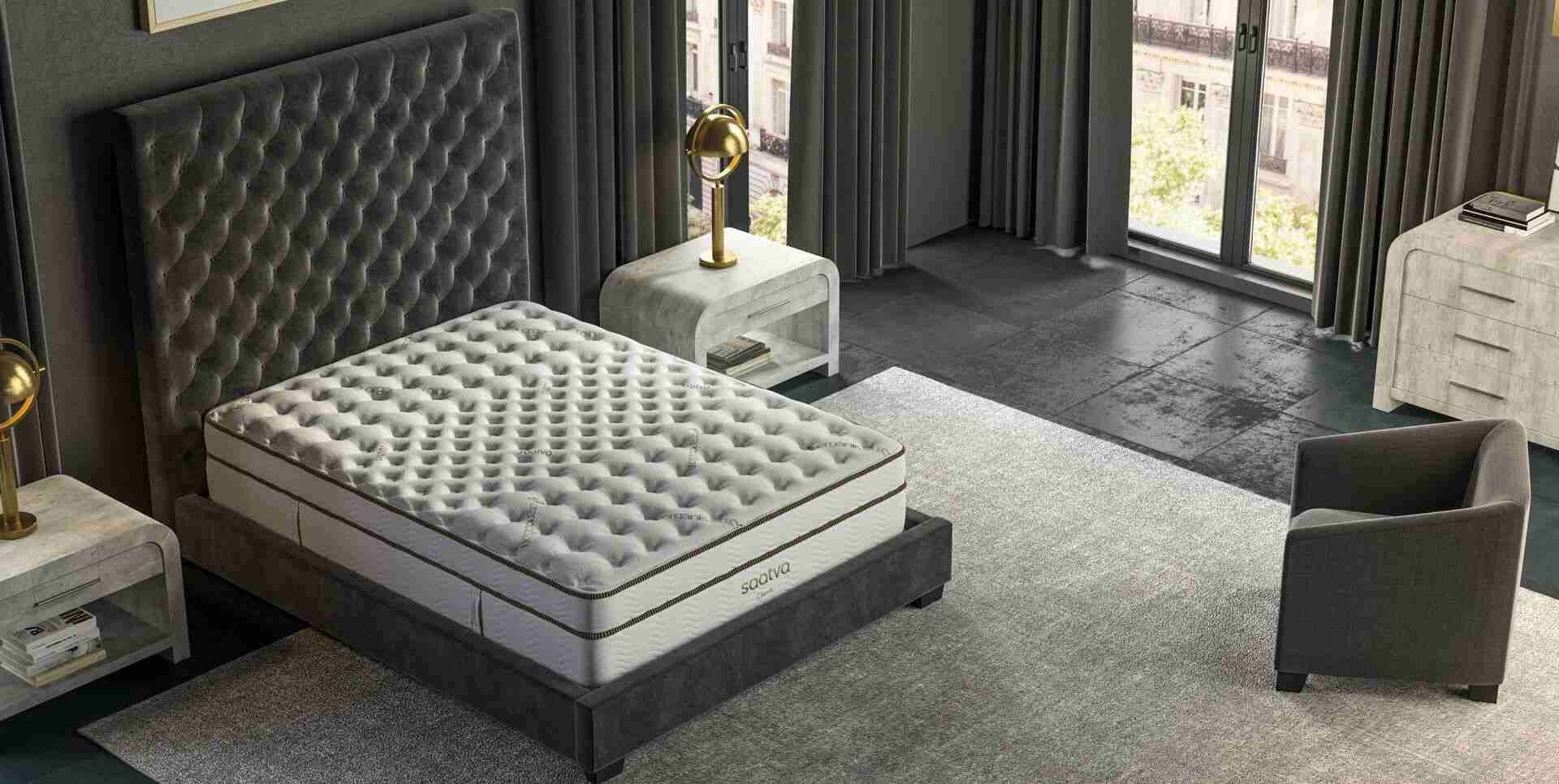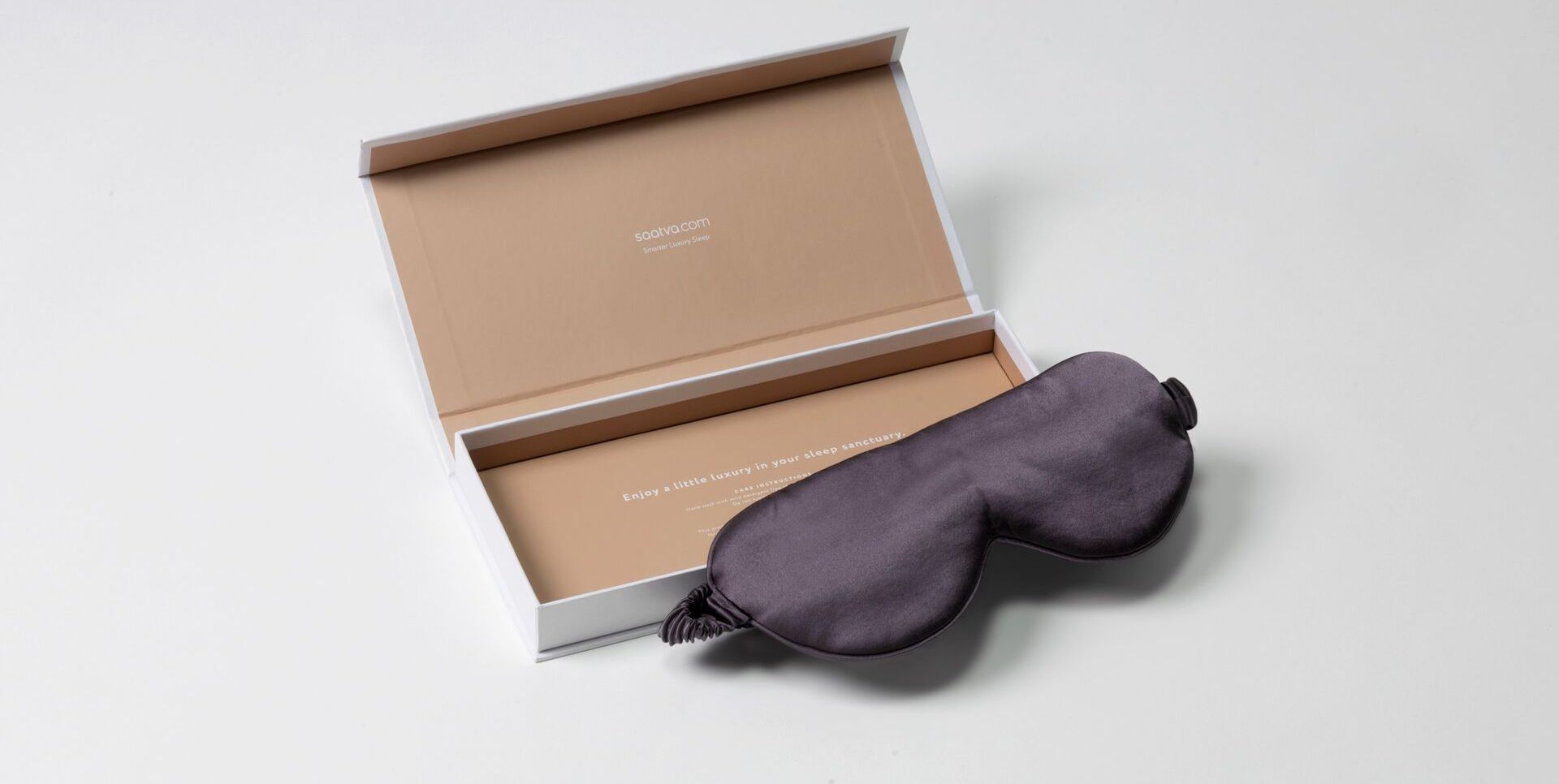We all have nights where we struggle to fall asleep. Whether you’re feeling anxiety about current events, you drank too much caffeine in the afternoon, it’s too hot in your bedroom, or something else, there are plenty of reasons why your sleep might be disrupted.
The good news is, there are several methods you can try to fall asleep more quickly if you’re having trouble catching those Z’s.
Watch this video about how to put together a relaxing nighttime routine:
How to go to sleep fast
Sleep experts swear by these tried-and-true tips to help you fall asleep quickly. Many of these tips can help you fall asleep in five minutes. Others might work in just 40 seconds! Here’s how to sleep fast so you can get the shuteye you need to feel refreshed in the morning.
Reset your sleep schedule
Your body has an internal “sleep clock” that releases the hormone melatonin at the same time each night—and insomnia can mess up this clock. Reset your sleep schedule by exercising each morning, cooling the temperature of your house at night, and dimming lights in the evening.
Try the military method
In this popular TikTok trend adapted from the U.S. Navy, you relax your body bit by bit—starting with the muscles in your face before moving to your upper body and then, finally, your lower body. This method often helps people fall asleep within two minutes.
Practice deep breathing
Deep breathing helps you fall asleep by calming your nervous system. Try this exercise to fall asleep faster: Engage your diaphragm, letting your belly expand as you breathe in through your nose on a count of four. Then exhale through your nose on a count of six.
Meditate before bed
Similar to deep breathing, meditation can aid sleep because it helps you wind down. Use the hour before bed to listen to a deep slumber meditation. And if you wake up during the night, try meditating to help you go back to sleep.
Do a yoga routine
Get ready for bed with relaxing yoga poses such as legs up the wall, child’s pose, supine twist, forward fold, or corpse pose. If you need someone to walk you through each pose, you can find yoga videos online.
Stretch your body
If the word “yoga” sounds too intimidating, you can also do simple basic stretches at night instead. For instance, a seated twist promotes muscle relaxation, while a lying hip stretch is good for people who sit at a desk all day.
Exercise during the day
Exercise can have major benefits for your sleep—especially if you work out in the early morning. Morning workouts help you maintain a routine. They decrease your nighttime blood pressure too, which aids your shuteye all night long.
Take a warm bath
Studies show a warm bath before bed can help you get a deeper sleep when your body temperature drops post-tub time. Time your bath an hour or two before bed and soak for at least 20 minutes.
Put on socks
A recent study found that sleeping with socks on can help you fall asleep more quickly and even improve your overall sleep quality. The only exception is if you’re someone who’s going through menopause. If you’re experiencing hot flashes, you’ll want to avoid anything that makes you feel overly warm in bed.
Listen to relaxing music
The right bedtime playlist can soothe not only your ears but your entire body. Lyric-free music helps decrease levels of cortisol (the stress hormone) and increase dopamine (the pleasure hormone).
Read a book
Reading in bed reduces stress and gets you ready for sleep by slowing your heart rate and easing muscle tension. Reading is even more effective than other common stress-busting techniques! Choose from nostalgic children’s books, short poems, or bedtime stories written for adults.
Write in a journal
Journaling has similar benefits to reading, helping you relax by bringing closure to your day. Best practices for journaling in bed: Prop yourself up in bed, go old school by writing in a physical notebook, and give yourself plenty of light to work with.
Turn down the thermostat
The ideal bedroom temperature for good sleep is between 60 and 67 degrees. While different people are comfortable at different temperatures, as a general rule of thumb, making your bedroom a little cooler at nighttime will help you sleep well.
Block out noise and light
Wondering how to sleep fast in five minutes? Drawing the curtains closed and sleeping with earbuds in might do the trick. Blocking out distractions that could disturb you is key to falling asleep quickly.
Sniff essential oils
Lavender, chamomile, sweet orange, ylang-ylang, cedarwood, jasmine, neroli, sandalwood, and vanilla are the best essential oils for promoting sleep. You can add the oils to a bath or a diffuser—or even try misting them over your pillow.
Turn off your phone
Go to sleep fast and easily by simply turning off your phone. The blue light from your devices will make you feel awake and alert—and scrolling social media can stimulate your mind in a bad way. Turn off your phone an hour before bed or at least put it on night mode.
Drink a cup of non-caffeinated tea
Sipping tea that doesn’t include caffeine is a helpful trick to aid sleep. Enjoy an herbal tea like chamomile, valerian, passionflower, or lavender.
Use a weighted blanket
When it comes to how to go to sleep fast, using a

Plush, all-natural weighted blanket for deeper, more restful sleep
is one of the best tips. These blankets weigh between five and 25 pounds and have a calming effect that helps you fall asleep more quickly.
Adjust your sleep position
If you’re having trouble falling asleep, consider sleeping in a different position. Stomach, back, and side sleeping all have pros and cons—and it could take some experimenting to find the best position for you. (Here’s how to sleep comfortably with a new ear piercing.)
Get comfortable on your mattress
Our final advice on how to get to sleep fast: Make sure you have the right mattress! The perfect one for you depends on a variety of factors, including your sleep position, age, and health conditions. Check out Saatva’s collection of high-quality mattresses, and take our online mattress quiz, to find your ideal match. We give you 365 nights to try our mattresses at home to see if they’re right for you.






